IOM Yemen: Dignity for All - Addressing the Urgent Sanitation Needs of Displaced Families in Yemen
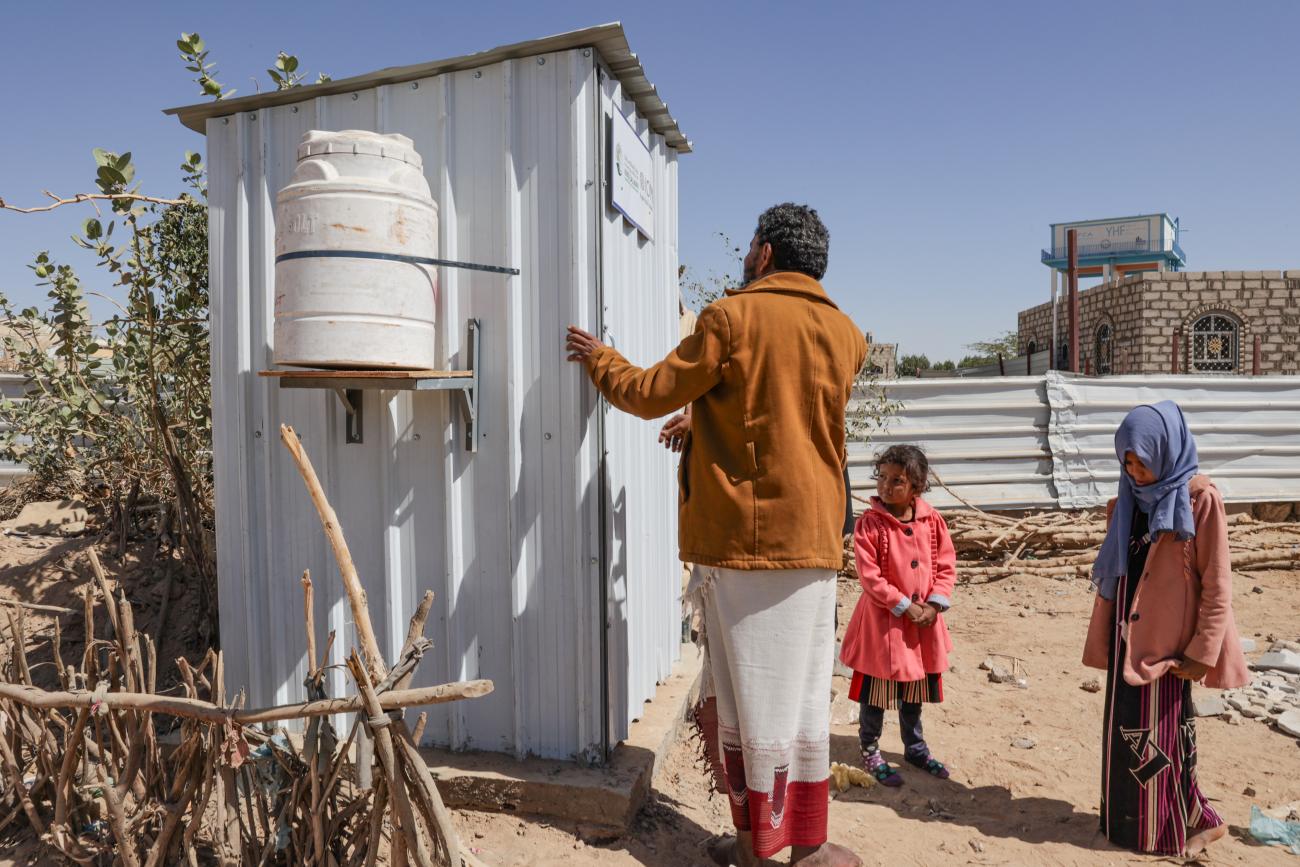
--
Marib, Yemen
In Al Jufainah, Yemen’s largest displacement camp, more than 15,000 families live in makeshift shelters, struggling with the daily reality of limited access to water and sanitation. For many, a private latrine is a luxury they cannot afford. According to the 2025 Humanitarian Needs Overview, 15.2 million people across Yemen lack adequate Water, Sanitation, and Hygiene (WASH) services – nearly half of the country’s population.
For Ali, a father of five, displacement has been a constant struggle. He and his family have endured three waves of upheaval, fleeing the relentless conflict in their hometown of Al Hodeidah before finally finding refuge in Al Jufainah. Unable to afford rent, Ali was given permission to set up a tent on a small patch of land. This fragile shelter became his bedroom, kitchen, and everything in between.
For Ali and many other displaced families, making ends meet has been an uphill battle. The small income he earns is barely enough to feed his children, leaving nothing for other necessities, let alone a latrine. Without one of their own, his family had no choice but to share their neighbour’s.
“We often hesitated to use our neighbour’s latrine at night, afraid of waking them, so we waited until morning.” – Ali, Displaced Father
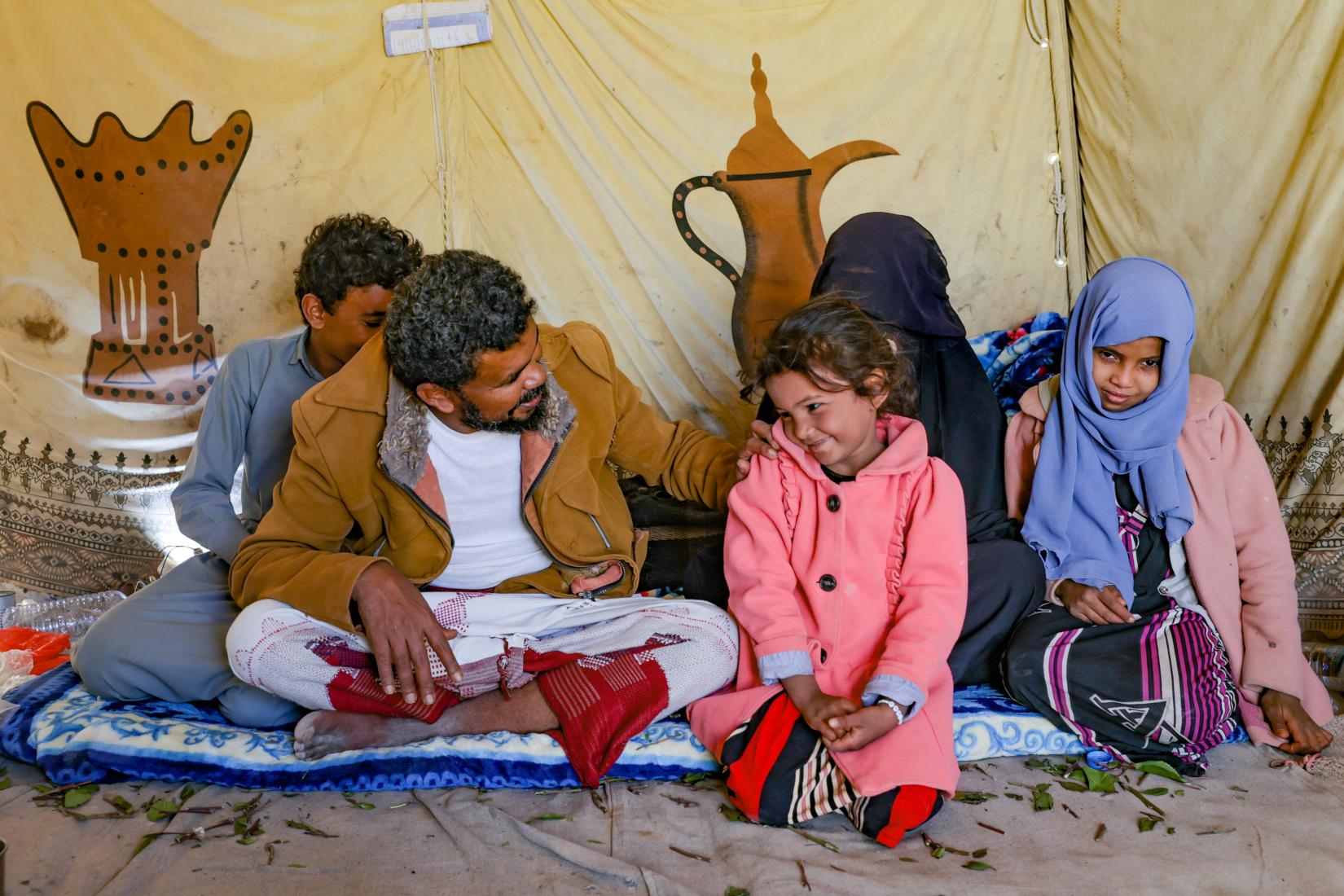
The Cost of Dignity
For twelve-year-old Mohammed, watching his father struggle to secure a latrine was unbearable. The weight of their situation pressed on him so much that he decided to put his education on hold, choosing instead to work alongside his father in the hopes of easing the burden. After months of hard labour, he finally managed to buy the basic materials for a makeshift latrine. However, it was nothing more than a fragile structure of sticks and blankets, offering little privacy or protection.
For the rest of the family, the struggle for privacy extended far beyond the latrine itself. Without proper sanitation, women and girls had to adjust their daily routines, often waiting until nightfall just to bathe. Samira explains how even the simplest tasks became a challenge.
“We felt too exposed washing during the day,” she confesses. “We were always afraid someone might see us.”
With Ali away for most of the day, Samira took on the responsibility of caring for their three daughters. Each time they needed the toilet, she had to accompany them, leaving little time for anything else. Since it's uncommon for women to leave their shelter at night, Ali stayed on guard instead.
The darkness only added to their worries, as lizards, scorpions, and other creatures commonly found in Ma’rib’s arid desert lurked near their shelter. “I can’t forget the tears my little daughter shed when a dog attacked her in the latrine,” Ali says.
Beyond the need for latrines, the lack of a proper sanitation system remained a major concern. Without effective drainage networks, the community had no choice but to dig open pits at random. These makeshift cesspools, covered only with wood and stones, posed serious hazards, especially for children and vehicles.
“I never used to worry when my daughters played outside, but after a child lost their life falling into one of the pits, I became afraid to let them out of my sight.” – Samira, Displaced Mother
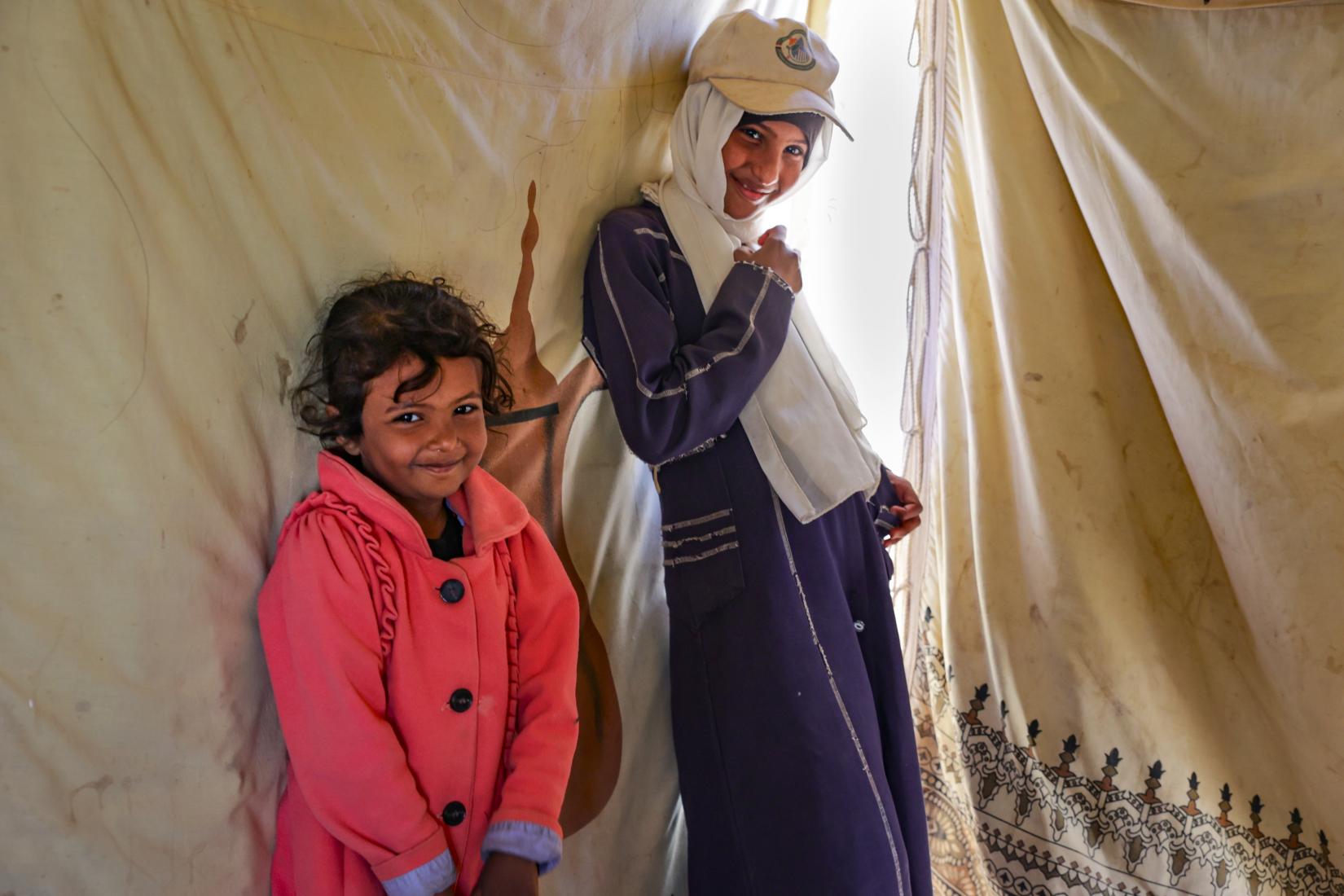
From Hardship to Relief
To address these pressing issues, the International Organization for Migration (IOM), with support from King Salman Humanitarian Aid and Relief Centre (KSrelief), has installed more than 300 latrines for the most vulnerable displaced families. Each latrine is equipped with a lockable door to ensure privacy, particularly important for those living near public roads. A covered roof provides protection and comfort, while a ventilation pipe improves air circulation.
IOM WASH Engineer Dheyab Qaid highlights the critical role of durable latrines and proper sanitation in displacement sites, where the lack of facilities contributes to the spread of diseases such as cholera and acute watery diarrhea.
“The introduction of durable latrines and sanitation facilities has significantly improved hygiene in the community,” explains Dheyab. “Without them, women and children, in particular, struggled to maintain even the most basic hygiene practices.”
Along with privacy concerns, the lack of water made sanitation even more challenging. Since families use water for cleansing after using the latrine, they previously had to fetch it each time. Now, a newly installed water tank is directly connected to the facilities, making access easier and improving hygiene.
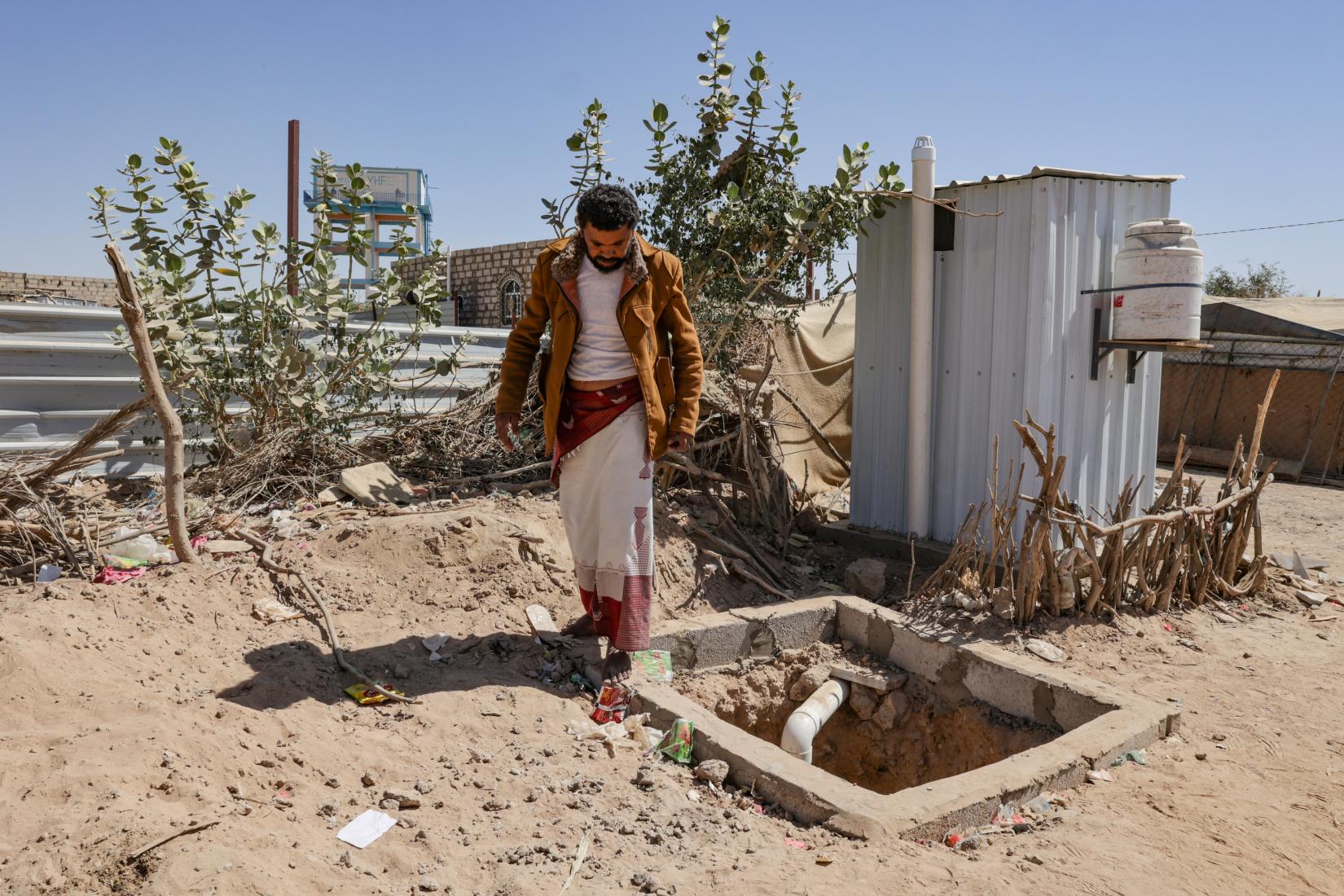
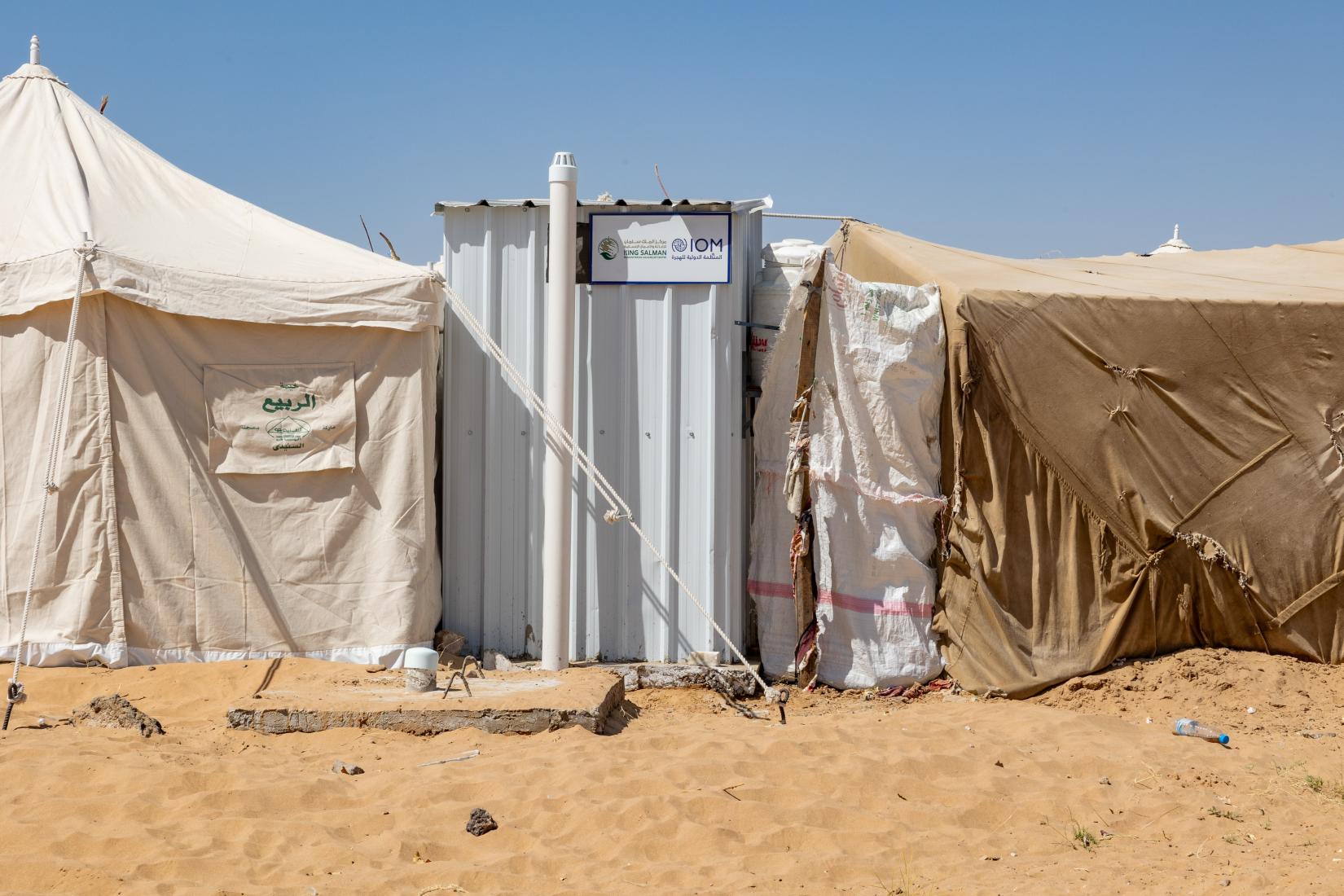
A Step Toward Safety
With KSrelief’s support, IOM also constructed 200 new cesspits and covered 400 old ones. This not only reduces the risk of disease outbreaks but also restores a sense of dignity and safety for displaced families. Parents no longer worry as much when their children play nearby and families no longer have to spend what little income they have on medicine to treat preventable illnesses.
“Now I can play with the other children without being scared,” says five-year-old Hasna, Ali’s daughter. “Since the pits were covered, I don’t even get bitten by mosquitoes anymore.”
Beyond infrastructure, IOM teams conduct regular awareness sessions to engage the community, ensuring families understand how to use and maintain these facilities properly. For many, these improvements have brought a sense of security and stability.
“For me, having a latrine feels like finally having a proper home,” says Ali. “I no longer have to worry every moment about my family’s safety.”

